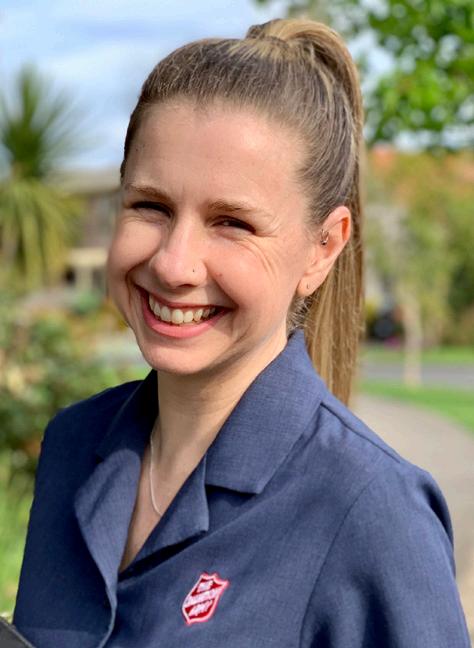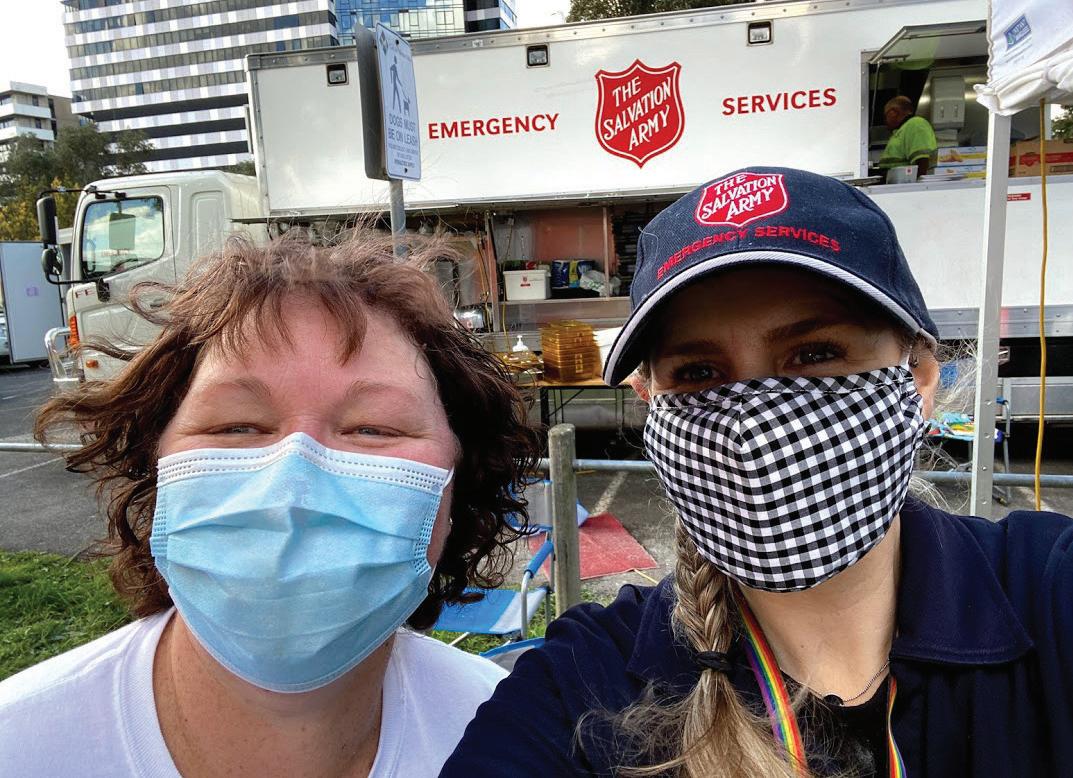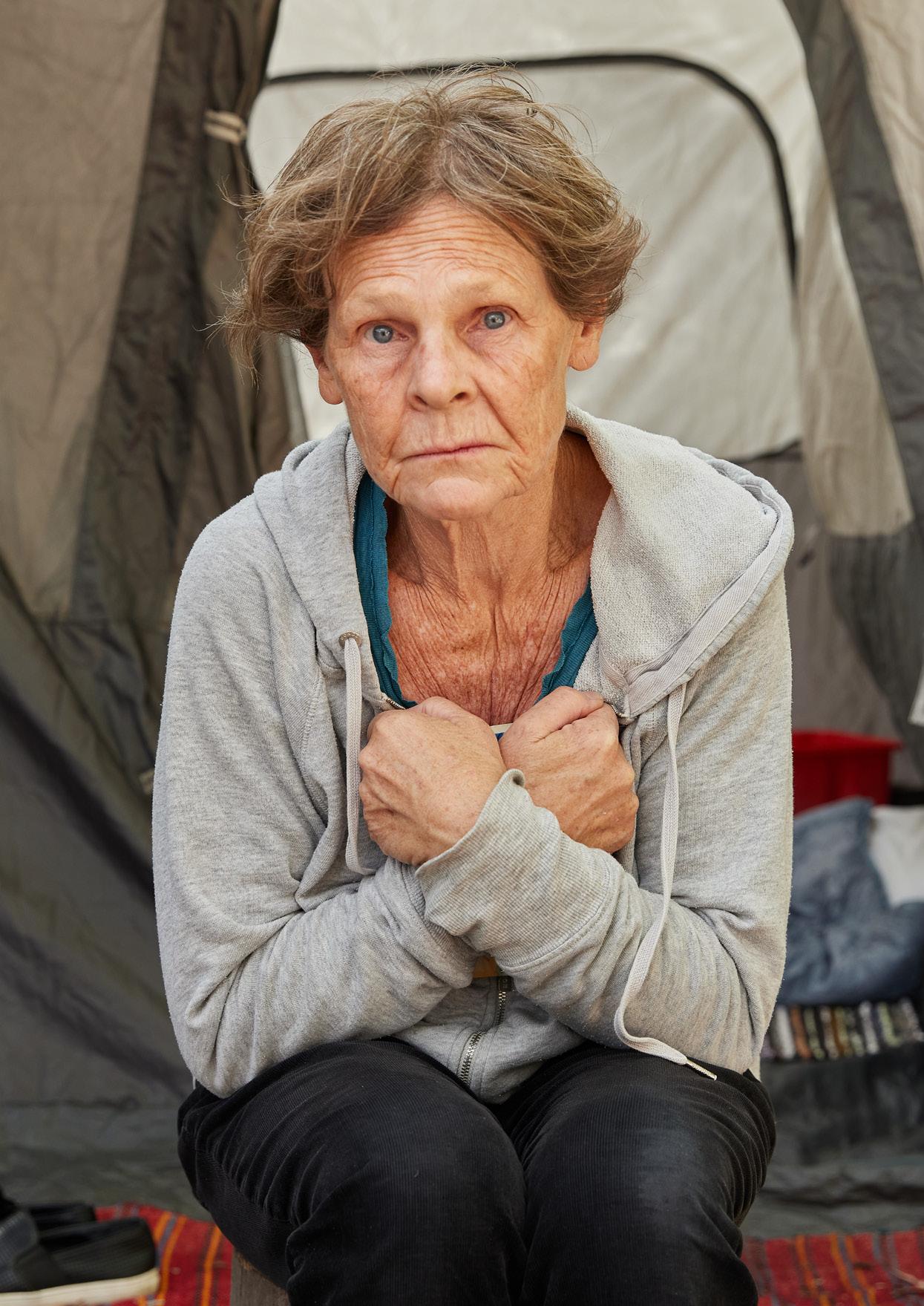
4 minute read
Mission: Portfolio overview
The hidden faces
OF FAMILY VIOLENCE
Advertisement
Captain Melanie Cop is a Salvation Army officer and family violence chaplain. She visits women in refuges, safe houses, and those the Salvos support in local communities. In the 2020-21 financial year, the Salvos in Australia assisted more than 5800 women and children and provided more than 63,000 sessions of care to those at risk of, or experiencing, family and domestic violence (FDV). Salvos services include crisis, emergency, transitional and long-term housing, counselling, casework, outreach, and support.
“Everyone has a story,” Melanie says. “Some of the stories I hear are of triumph and overcoming, some are of sorrow and loss, and then there is everything in between. Women share stories with me of some of their darkest and most terrifying experiences – stories that keep them awake at night and bring terror in the shadows.
One of the refuges where Melanie works is a short-term stay centre. It’s the first point of call for women literally fleeing their homes and needing emergency care.
“The DFV team works with the police, hospitals, motels – whatever is needed – to make sure the women are safe,” Melanie explains. “The team arrange paperwork, crisis payments, and longer-term accommodation. We look after the women physically and emotionally. We are there alongside them.
Captain Melanie Cop, family violence chaplain. Captain Melanie Cop (right) enjoys meeting people as an officer, which can include helping the Emergency Services when required.

“Longer-term support may include being with a family in court, attending the police station with them to make a statement, or escorting them to appointments. Other days I might organise a birthday party, picnic, or back-to-school supplies. Each day is different.
Melanie shares that her work is “both amazing and emotionally exhausting at the same time”. “I love being part of a journey and contributing in a positive way to that journey. It’s really important to me to see that the women are empowered, and not just enabled, and to see them grow in their own strength. It’s such a privilege to see them come from introverted and timid to confident and happy, to see that transition or the potential in each of the victim-survivors. I really do have the best job in the world.”

MARGARET FINDS HER FAMILY AND A PLACE to call home
Before Margaret* became homeless, she lived a happy life with her daughter, who meant the world to her. Tragically, Margaret’s relationship with her partner turned violent and her life took a terrible turn. Seven years ago, Margaret was beaten so badly by the man she loved that it left her with brain damage and memory loss. Fearing for her life after the attack, Margaret had no choice but to escape and flee her home with nothing, leaving behind the daughter she loved.
In those seven years, Margaret lived on the streets and in a tent. Her badly affected memory meant she couldn’t remember where her daughter lived or how to contact her. During all that time, her daughter had been desperately searching for her too.
The Salvos met Margaret when a park ranger found her tent in a city park, damaged by an overnight storm. Margaret, an elderly lady, emerged from the tent, somehow uninjured. The pain of all she suffered was written across her face. The park ranger contacted the Salvos, who quickly arranged a hot meal and immediate care for Margaret. The team then hunted down phone numbers until they found Margaret’s daughter. When mum and daughter talked, there were tears, especially when Margaret learned she had grandchildren she’d never seen.
The Salvos team packed Margaret’s few belongings into a van, along with late Christmas presents for the grandchildren, then drove Margaret three hours to the country town where her family lived. Reunited, Margaret is no longer homeless and no longer alone. This true story of transformation is one of many that Salvos personnel and officers are all too familiar with. This financial year, more than 37,000 people experiencing homelessness received support and our staff played a role in meeting many of those people at their point of need.
*Name has been changed






